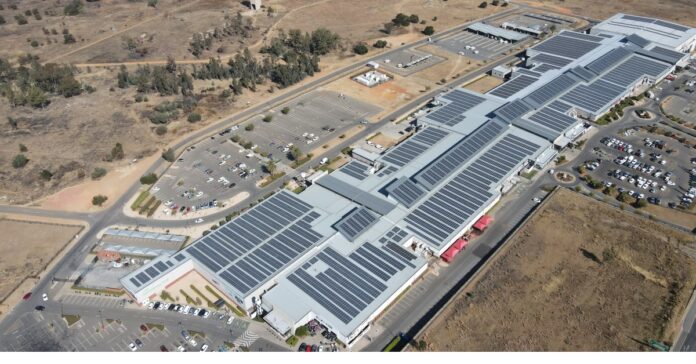In a move to combat disruptions caused by constrained electricity supply, Futuregrowth’s Community Property Fund (Comprop) invested in a hybrid power system at Heidelberg Mall that is expected to generate significant savings of up to R14 million annually.
Launched in June 2024, the hybrid system integrates 3.2 MWp of solar capacity, a 3.16 MWh battery storage unit, and multiple power sources to ensure a reliable and self-sustaining energy supply. This includes:
- Eskom: Utilised for arbitrage profit by charging the battery during off-peak hours and supplying power to tenants during peak hours.
- Solar: The primary source of energy for the system.
- Generators: Activated as a last resort when other sources are insufficient.
- Battery: Stores power to ensure continuous operation during peak demand times.
“This installation marks our first venture into the battery energy storage market,” explains Smital Rambhai, Portfolio Manager of the Community Property Fund. “While we are still learning and exploring improvements, the Heidelberg Mall system has already demonstrated significant operational efficiency. The system has been designed to optimise energy consumption and costs through sophisticated software that accounts for factors like weather conditions, seasonal daylight changes, and Eskom grid pressure,” he explains.
In practical terms, the system ensures that Heidelberg Mall operates independently of Eskom in the event of grid failure, with the added backup of generators. As a result, the mall can remain operational even during power outages, a common occurrence in the area. This reliability not only helps protect the mall’s operations but also offers substantial financial savings.
With an initial investment of R75 million, Futuregrowth expects to save between R12 million and R14 million annually, yielding an impressive return on investment of 16% to 19%. Importantly, the system also offers significant savings on diesel, which can cost as much as R11 to R12 per kWh. The use of solar and battery power drastically reduces operating costs, compared to traditional diesel generators which most tenants can’t afford as these are four times more costly. Instead, tenants opt to close their shops as outages impact their total occupancy cost and profitability.
“Beyond cost savings, the hybrid system ensures that tenants can continue operating without disruption, which enhances their revenue potential and supports long-term rental and capital growth. Moreover, the move to cleaner energy sources presents environmental benefits by reducing reliance on diesel-powered generators, though we have yet to measure the full carbon impact of the system,” Rambhai notes.
The Heidelberg Mall project is a promising example of how retail properties can become more resilient and self-sufficient in the face of South Africa’s energy uncertainty. While Futuregrowth continues to assess the performance of the hybrid energy system, it is clear that this energy innovation presents a compelling investment case and may prove to be a critical component of modern retail property management in the country.















